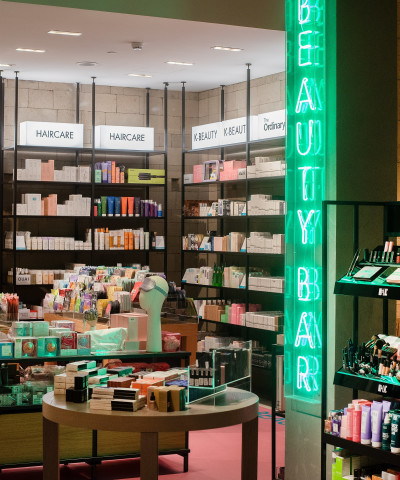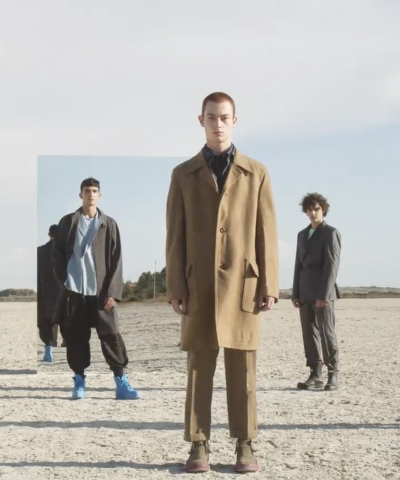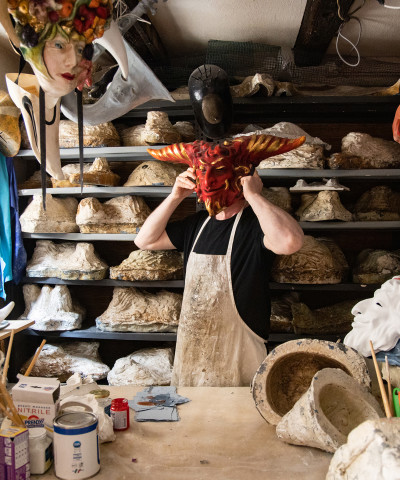Florence safe city
The lucid and reassuring vision of Carlo Nozzoli, director of Careggi's DEA department, clarifies doubts and reassures about Covid19: now the situation is good and under control, but Careggi is ready to face a possible reboud effect
Covid19: in recent weeks, in Tuscany, the contagion curve has decreased and the proportion of the most serious cases is falling. Is Florence now a safe city? Should we expect a rebound effect in the autumn? Will a vaccine or a drug save us? We talk about it with Carlo Nozzoli at the head of the DEA Department at Careggi Hospital (with emergency surgery, infectious diseases, medical departments and the emergency room) and among the doctors on the front line in the months of the emergency we may have left behind.
Can we talk about a favourable trend in our region?
I would say yes, the contagions in these early days of June are on our fingertips. Add to this the fact that serious cases are now increasingly rare. On the contrary, in Careggi during this period we mainly detect cases of patients who come to us for other reasons, traumas for example, and who are positive for Covid19 after the swab but do not present any symptoms.
Does this mean that the virus is losing power?
The real answer is that we don't know. What almost all clinicians are finding at the moment is that the disease is manifesting itself with less severe symptoms than in previous months and that there are many more asymptomatic symptoms than before.
From your privileged observatory, what is the level of safety in Florence?
Florence at the moment has few cases, ranging from one to four cases of asymptomatic positivity. And it also seems to me that the city is responding to the current standards of safety and social distance with great responsibility. In short, I feel I can say that Florence is, for the moment, a safe city with a situation under control.
Is it possible to return to a more aggressive form in the autumn?
This possibility exists because the virus is still circulating among the population, and since it is a respiratory virus, i.e. it infects people through the respiratory tract such as influenza or other coronaviruses that cause colds, in the winter months it can find more favourable conditions for survival and circulation. The fact is that Covid19 is still a little known virus, so we cannot predict how it will develop in the coming months, but we can be prepared to deal with it in the case of a rebound effect.
The Hospital of Careggi in recent months has faced the Coronavirus emergency with great effectiveness, what have been the strengths?
The first strong point was the health management that managed to reorganize the Hospital in a very short time. The other strong point was the response of the professionals to this reorganization, the great sense of collaboration and unity of purpose. We were sometimes able to move entire wards, open new ones and transfer intensive care beds in 24/48 hours. So I would say two factors: a management that has operated at high levels and the hospital staff who have demonstrated great medical, logistical and human skills.
What is the role of the General Practice Department compared to Covid19?
At Careggi it was to allow us to treat a higher number of patients, because infectious diseases have many beds, but they could not cope alone with the number of cases affected by Covid19 that have been pouring into Careggi since February. At the climax we converted and dedicated three entire departments of internal medicine to this problem, dealing with all the complications of conversion. The care of these patients is in fact quite complex, starting from the fact that the operator has to bear a much more difficult care burden than normal: acting with overalls, masks and gloves, following strict hygienic-sanitary protocols, undressing and disinfecting continuously.
What about the role of the internist?
It is the doctor who knows a little bit about all diseases and especially in older patients Covid 19 is often associated with many other pathologies between complications and past illnesses that are exacerbated when they are associated with that lung infection. Therefore, the internist for these older patients plays an important role.
In order to deal with a possible new emergency, what will Careggi's set-up be in the coming months?
In this phase of decline we are closing all internal medicine departments, we have already closed two, including the one I run, and we are also closing the third, and converting them to normal internal medicine departments. At the moment, the department of infectious diseases is the watchdog for any new positive cases. But in the meantime we have transformed an entire ward of the hospital in Careggi - the surgical clinic ward that has been renovated and refitted - into the Covid centre, ready to take action in the event of a new big wave of epidemic.
Is plasmatherapy in use in Careggi?
We have developed the protocol but so far there has been no need to apply it because there are very few patients.
There are many questions that we have all asked ourselves in this period to try to avoid coronavirus infection. Some of them concern daily habits such as hygiene at home and therefore whether to avoid entering the home with shoes used to go to work or to go shopping. What do you think?
I think the most important thing is hand hygiene. Do you think that in hospitals, in order not to transmit infections, the only safe method indicated by the World Health Organization is to wash the hands of the operators. Bacteria and viruses are basically carried by the hands. The hygiene of the environment and personnel is important and useful regardless. Taking off your shoes before entering the home may be a good habit, but it is not a suitable measure to prevent the transmission of Covid19.
Can you explain to us in a simple way what is the Rna-based vaccine?
There are two types of viruses: DNA (which we also have in our cells) and Rna. Covid19 is in Rna, different but always based on similar components of DNA. Producing a vaccine involves identifying a specific area of the virus that can determine the production of defences in humans: antibodies. In Oxford, with the support of an Italian company, they are testing such a vaccine. A virus that is not aggressive for man, because it is deactivated, has been taken and a small piece of Rna del Covid19 has been attacked on it. This must be administered to man to induce a response against that little piece of Rna and if it is the right one, when man is attacked by the virus, the virus is blocked at the very point where it would attack man. This is a similar type of vaccine to the one developed against Ebola.
Only the vaccine can eradicate the coronavirus?
I am of the opinion that perhaps it will be easier, and above all faster, to find effective drugs against Covid19. There are several in the testing phase and in a simplified way they work like this: when the virus enters inside us and attacks us, it binds to a molecule of our organism, if we identify a drug that blocks this process, we block the disease. The vaccine involves a very long experimentation, we must be sure that it does not create side effects, so it must be tested on humans but with the virus in circulation, the subjects on which the vaccine is tested must be in a condition to be able to become infected. The risk is that if the power of the virus decreases, the chances of having the necessary scientific evidence of the effectiveness of the vaccine will also decrease. In short, it is more likely that the anti-Covid drug will be found earlier than the vaccine.


















